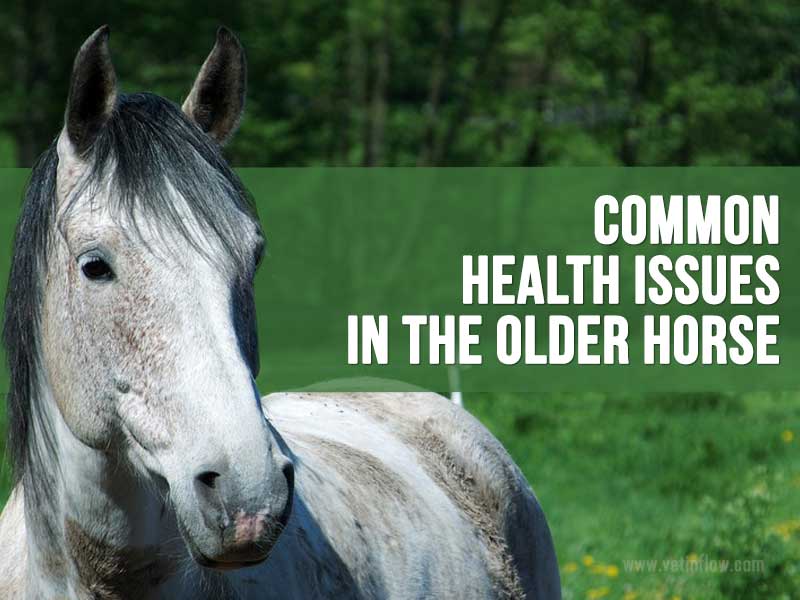
Common health issues in the older horse
Nowadays domesticated animals are living longer due to improved diet, management and veterinary care. Horses and ponies are just another great example of this as they can now live up to 30 years! The average horse lifespan is about 24 years and a horse is considered to be old or 'geriatric' when it has reached 20 years of age.
Senior horses will often show grey hairs around the eyes, ears, forehead, muzzle, and throughout their coats, as well as a certain loss of muscle tone and body condition. The older horse may also show deep depressions above the eyes, a characteristic drooping lower lip and a lowback, an excessive curvature of the spine also known as lordosis.
Older horses are more likely to suffer from:
- Lameness one of the most common problems seen in aging horses is arthritis or degenerative joint disease. The cartilage that protects the bones of their joints gradually breaks down as the horse ages and it can affect any joint, causing stiffness and lameness. Unfortunately it cannot be cured, but it can be managed so your horse can live a comfortable life. Other potential cause of lameness is related to the lack of proper care or inadequate hoof horn growth.
- Difficulties eating, messy eating habits and weight loss an older horse often presents a reduced digestive ability and teeth problems. These include abnormal wear patterns, loose or missing teeth andtooth decay. Horse's teeth grow continuously throughout their life. However, as horses get older, the rate of wear is often faster than the rate of growth.All these problems may cause pain while chewing and consequently, a reduced food intake.
- Equine Cushing's disease this chronic illness is caused by a tumour in the pituitary gland (located in the brain), which produces and regulates hormones. Clinical signs include depression, weight loss, sweating, increased drinking and urination, growing a thick coat that does not shed in the summer and it can cause laminitis.
- Liver and kidney problems these organ can degenerate as time goes by and their ability to function properly can decrease. Weight loss and loss of appetite are possible signs of liver and kidney issues.
- Tumours the most common tumours in horses are sarcoids and melanomas (skin tumours). Sarcoids are non-malignat tumours that can vary greatly in size, nature and appearance. They tend to grow quickly and are very susceptible to trauma, often ulcerating and becoming infected. Melanomas, unlike sarcoids, tend to grow slowly and are usually less aggressive. It is expected that eighty percent of gray-coloured horses will develop melanoma.
- Cataracts an opacity or clouding of the eye which can appear progressively and may cause loss of sight. This occurs in the lens, a transparent structure of the eye located between the cornea and the retina.
If your horse is showing signs of illness or deteriorating health do not hesitate and contact your veterinary surgeon. With proper care and management senior horses can enjoy much longer, happier and productive lives.
Would you like to know more about horses? Check our Equine Courses:
Equine courses
Read the previous article: Cancer-sniffing dogs detect prostate cancer with 98% accuracy!


